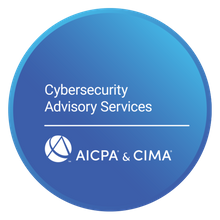Ransomware Rollback: Safeguarding Tax Preparers' Data
In the rapidly evolving digital landscape, tax professionals find themselves at the forefront of cyber threats. Ransomware attacks have surged in recent years, targeting businesses of all sizes, with tax preparers being particularly enticing targets. The consequences of a successful ransomware attack on a tax practice go beyond financial losses; they can shatter the trust clients place in their preparers. In this blog post, we delve into the vital topic of ransomware rollback and how it serves as an impenetrable shield for tax professionals, ensuring not only data security but also the preservation of the invaluable trust their clients have in them.
Understanding the Ransomware Threat to Tax Preparers
Ransomware attacks have become an ever-present menace in the digital landscape, and tax preparers have become prime targets for several reasons. These attacks encrypt sensitive data, holding it hostage until a ransom is paid. Tax professionals handle a treasure trove of data, including tax returns, financial records, Social Security numbers, and more, making them appealing targets for cybercriminals seeking valuable information.
The impact of a ransomware attack on a tax practice can be devastating. Not only does it disrupt operations and potentially result in financial losses, but it also jeopardizes the trust clients place in their tax preparers. Clients expect their financial information to be handled with the utmost care and security. When a tax practice falls victim to a ransomware attack, it's not just data that's held hostage; it's also the trust that clients have in their preparer's ability to protect their sensitive information.
As tax preparers strive to maintain the confidentiality and integrity of client data, the looming threat of ransomware cannot be ignored. In the next sections, we'll explore how ransomware rollback, a powerful cybersecurity solution, can play a pivotal role in fortifying the security of tax professionals and preventing the erosion of client trust. We'll dive into its benefits, practical implementation, and real-world success stories. So, let's embark on this journey to safeguarding your tax practice against data hijackers and preserving the trust your clients place in you.
The Tax Preparer's Ransomware Dilemma: Why Data Protection Matters
The dilemma faced by tax preparers in the digital age revolves around the paramount importance of data protection. Tax professionals deal with an array of sensitive client data, which is the lifeblood of their practice. This data includes not only financial records but also personally identifiable information (PII) such as Social Security numbers, addresses, and birthdates. Protecting this information is not merely a legal obligation; it's a fundamental trust-building exercise with clients.
Ransomware attacks target this valuable treasure trove of data. Cybercriminals exploit vulnerabilities in a tax practice's defenses and encrypt this data, making it inaccessible to the tax preparer. In exchange for the decryption key, attackers demand a ransom, often payable in cryptocurrency.
The consequences of falling victim to such an attack are multifaceted. First and foremost, there's the financial aspect. Paying the ransom is never a guarantee that you'll regain access to your data. Moreover, it fuels the cybercriminal economy, incentivizing further attacks. Secondly, there's the disruption to your business operations. Tax season waits for no one, and any downtime can result in missed deadlines and disgruntled clients. Finally, and perhaps most insidiously, there's the erosion of trust.
Clients rely on tax professionals to handle their financial information with the utmost care. A ransomware attack not only threatens data security but also shatters the trust that clients have in their tax preparers. Clients may rightly question the security of their sensitive information, potentially leading to a loss of business and reputational damage.
This is the heart of the tax preparer's ransomware dilemma: the delicate balance between safeguarding sensitive client data and preserving the trust that underpins the client-preparer relationship. In the following sections, we'll explore how ransomware rollback can be a beacon of hope in this landscape, providing a means to protect both data and trust in the face of evolving cyber threats.
Ransomware Attacks on Tax Professionals: Stats and Trends
To truly grasp the urgency of safeguarding tax professionals from ransomware attacks, it's essential to examine the statistics and trends that underscore the gravity of the situation. Ransomware attacks have been on the rise globally, with no industry or profession being immune. Unfortunately, tax preparers have become increasingly attractive targets for cybercriminals due to the vast amounts of sensitive information they handle.
In recent years, the numbers paint a stark picture. Ransomware attacks on tax professionals have surged, with a significant increase in reported incidents. These attacks not only disrupt daily operations but also often result in data breaches, causing immense financial and reputational damage.
The statistics also reveal that many tax professionals have been left with no choice but to pay ransoms to regain access to their data. This not only funds cybercriminal activities but also highlights the dire consequences of being unprepared for such attacks.
Additionally, tax professionals face the growing threat of data breaches stemming from ransomware incidents. The exposure of client data due to a breach can lead to regulatory fines, legal actions, and, most significantly, the loss of trust that clients place in their tax preparers.
Understanding the stark reality of ransomware attacks on tax professionals is crucial. It underscores the importance of proactive cybersecurity measures, such as ransomware rollback, to defend against these threats effectively. In the upcoming sections, we will delve into how ransomware rollback solutions can be a game-changer in countering these statistics, enhancing data security, and preserving trust.
Understanding the Impact: Loss of Trust After a Ransomware Attack
A successful ransomware attack on a tax preparation business goes beyond the immediate financial and operational consequences; it strikes at the heart of the client-preparer relationship—trust. Clients entrust tax professionals with their most sensitive financial data, expecting it to be handled with the utmost care and security. When a ransomware attack breaches this trust, the fallout can be profound.
Clients rely on their tax preparers to safeguard their financial information, and a data breach due to a ransomware attack can shatter this trust irreparably. The aftermath often includes clients questioning the security of their data, the effectiveness of the preparer's cybersecurity measures, and whether their personal and financial information is truly safe.
The loss of trust extends beyond individual clients. It can also impact the tax professional's reputation within the community and industry. News of a ransomware attack and data breach can quickly spread, leading to a tarnished image that can take years to rebuild, if at all. Potential clients may be hesitant to seek services from a tax preparer with a history of security breaches.
Moreover, there are legal and regulatory ramifications. Data breaches can trigger investigations, fines, and lawsuits, further adding to the financial and reputational damage.
In essence, a ransomware attack doesn't just hold data hostage; it holds the trust of clients and the reputation of the tax preparer hostage as well. This is why protecting against ransomware attacks isn't solely about safeguarding data; it's about preserving the trust that forms the foundation of the client-tax preparer relationship.
In the following sections, we will explore a powerful solution that not only bolsters data security but also acts as a formidable shield against the erosion of trust: ransomware rollback. We'll delve into its mechanisms, benefits, and how it can be a game-changer in the world of tax preparation cybersecurity.
Ransomware Rollback: Your Shield Against Data Hostage Situations
Amid the rising tide of ransomware attacks targeting tax professionals, a beacon of hope emerges in the form of ransomware rollback solutions. These innovative cybersecurity tools act as a powerful shield, ready to defend against data hostage situations.
But what exactly is Ransomware Rollback?
Ransomware rollback is a proactive cybersecurity solution designed to combat the threat of ransomware attacks effectively. It empowers tax professionals to regain control over their data when faced with a ransomware attack without capitulating to the attacker's demands. Instead of paying a ransom that may or may not result in data retrieval, ransomware rollback allows you to roll back your system to a pre-attack state, eliminating the need to pay a ransom and avoiding the potentially futile negotiations with cybercriminals.
Here's how it works: Ransomware rollback solutions continuously monitor your systems and create secure backups of your data. When a ransomware attack occurs, these solutions detect it in real-time and trigger an automatic response. They isolate the affected systems, block the ransomware, and initiate the restoration process using the secure backups. This means that even if your data is encrypted, you can roll back to a clean and safe state, sidestepping the attacker's demands.
The benefits of ransomware rollback for tax professionals are manifold. It significantly reduces downtime, ensuring that tax season operations continue without disruption. There's no need to negotiate with cybercriminals, eliminating the risks associated with paying a ransom. Most importantly, it preserves the trust your clients have in your ability to protect their data.
In the subsequent sections, we will explore the myriad benefits of ransomware rollback in greater detail, including real-world success stories, implementation strategies, and how it can be your ally in the ongoing battle against ransomware attacks.
The Benefits of Ransomware Rollback for Tax Preparers
As tax professionals, the benefits of implementing ransomware rollback solutions cannot be overstated. These innovative cybersecurity measures offer a multi-faceted approach to defending your practice against ransomware attacks, preserving your client trust, and ensuring business continuity.
-
Data Recovery Without Ransom Payment: The primary advantage of ransomware rollback is the ability to recover your data without having to pay a ransom to cybercriminals. By reverting to a clean and secure state, you eliminate the need for negotiations and mitigate the risks associated with payment.
-
Reduced Downtime: Ransomware attacks can cripple your operations, especially during tax season. Ransomware rollback minimizes downtime by quickly restoring your systems and data, allowing you to continue serving your clients seamlessly.
-
Preservation of Client Trust: Clients expect their tax professionals to safeguard their sensitive financial information. Implementing ransomware rollback not only protects data but also demonstrates your commitment to client trust. Knowing that you have robust cybersecurity measures in place can instill confidence in your clients.
-
Financial Savings: Avoiding ransom payments and the costs associated with negotiating with cybercriminals can result in significant financial savings. Investing in ransomware rollback is a proactive measure that can lead to long-term cost reductions.
-
Legal and Regulatory Compliance: By protecting client data from ransomware attacks, you reduce the risk of data breaches, which could lead to regulatory fines and legal consequences. Ransomware rollback aids in maintaining compliance with data protection regulations.
-
Reputation Preservation: A successful ransomware attack can tarnish your reputation. Ransomware rollback helps preserve your professional reputation by preventing data breaches and the negative publicity that often accompanies them.
-
Peace of Mind: Knowing that you have robust ransomware protection in place can provide peace of mind. It allows you to focus on providing quality services to your clients without the constant fear of falling victim to a ransomware attack.
In the next sections, we will explore practical aspects of implementing ransomware rollback solutions and share expert insights on optimizing your cybersecurity defenses. Our focus will be on proactive measures and best practices to prevent ransomware attacks, ensuring your tax preparation business remains secure and resilient.
Preventing Ransomware Attacks: Best Practices for Tax Professionals
While ransomware rollback offers a robust defense against data hostage situations, proactive prevention remains the first line of defense. Tax professionals can adopt several best practices to mitigate the risk of falling victim to ransomware attacks:
-
Employee Training and Awareness: Invest in comprehensive cybersecurity training for your staff. Ensure they are well-versed in recognizing phishing emails, suspicious links, and the importance of strong password management.
-
Regular Software Updates: Keep your operating systems and software up to date with the latest security patches. Cybercriminals often exploit known vulnerabilities, and updates can close these entry points.
-
Data Backup and Recovery Plan: Establish a rigorous data backup and recovery strategy. Regularly back up critical data to offline or secure cloud storage. Test the recovery process to ensure it works effectively.
-
Access Control: Implement strict access controls and permissions. Limit access to sensitive data only to employees who need it for their roles.
-
Multi-Factor Authentication (MFA): Enforce MFA for all systems and accounts that handle sensitive data. This extra layer of security can thwart unauthorized access attempts.
-
Network Security: Employ robust firewall and intrusion detection systems to monitor and protect your network. Consider segmenting your network to contain potential breaches.
-
Email Filtering: Utilize email filtering solutions to identify and block phishing emails and malicious attachments before they reach your inbox.
-
Incident Response Plan: Develop a clear incident response plan outlining the steps to take in case of a ransomware attack. Ensure all employees are familiar with this plan.
-
Regular Security Audits: Conduct regular cybersecurity audits and vulnerability assessments to identify and address weaknesses in your infrastructure.
-
Vendor Risk Management: Vet and monitor third-party vendors and contractors who have access to your systems or client data. Ensure they meet robust cybersecurity standards.
-
Cybersecurity Policies and Enforcement: Establish comprehensive cybersecurity policies and enforce them rigorously. Make sure employees understand the consequences of non-compliance.
-
Cybersecurity Tools: Invest in advanced cybersecurity tools and software, such as intrusion detection systems, antivirus software, and threat intelligence platforms.
By implementing these best practices, tax professionals can significantly reduce their vulnerability to ransomware attacks and bolster their overall cybersecurity posture. In the following sections, we will delve into more details on ransomware rollback implementation and its role in a holistic cybersecurity strategy.
Choosing the Right Ransomware Rollback Solution
Selecting the right ransomware rollback solution is a crucial step in fortifying your tax preparation business against data hostage situations. With various options available, it's essential to make an informed decision. Here are key factors to consider when choosing a ransomware rollback solution:
-
Ease of Implementation: Look for a solution that is user-friendly and easy to implement within your existing IT infrastructure. Minimal disruption during deployment is crucial.
-
Real-Time Detection: Ensure the solution provides real-time ransomware detection capabilities to swiftly respond to threats as they emerge.
-
Automated Response: Seek a solution with automated response mechanisms that can isolate affected systems, block ransomware, and trigger data restoration without manual intervention.
-
Backup Frequency: Check how often the solution backs up your data. Frequent backups minimize data loss in the event of an attack.
-
Scalability: Consider whether the solution can scale as your tax practice grows, accommodating increased data volumes and expanding operations.
-
Data Encryption: Verify that the solution incorporates robust data encryption to protect your backups from unauthorized access.
-
Compatibility: Ensure compatibility with your existing hardware, software, and network configurations to prevent compatibility issues.
-
Support and Updates: Assess the level of customer support and the frequency of software updates provided by the solution provider.
-
Cost-Effectiveness: Evaluate the total cost of ownership, including licensing fees, maintenance, and potential cost savings from avoiding ransom payments.
-
User Reviews and Reputation: Research user reviews and the reputation of the solution provider in the cybersecurity industry to gauge reliability and effectiveness.
-
Compliance Features: If your tax practice is subject to specific regulatory requirements, check if the solution offers features to help you meet compliance standards.
-
Security Standards: Ensure the solution adheres to industry cybersecurity standards and best practices.
By thoroughly evaluating these factors, you can make an informed decision when selecting a ransomware rollback solution that aligns with your tax preparation business's specific needs and cybersecurity objectives. The next section will explore the role of ransomware rollback in this comprehensive cybersecurity strategy and provide insights on optimizing its effectiveness.
The Role of Ransomware Rollback in Your Cybersecurity Strategy
Ransomware rollback isn't just a standalone solution; it plays a vital role in your broader cybersecurity strategy. Here's how it fits into the overall framework of protecting your tax preparation business:
-
Early Threat Detection: Ransomware rollback solutions continuously monitor your systems for suspicious activity. When they detect a ransomware threat, they respond immediately, isolating affected systems and preventing the malware from spreading.
-
Data Recovery and Business Continuity: In the event of a ransomware attack, ransomware rollback allows you to quickly recover your data without paying a ransom. This minimizes downtime, ensuring that you can continue serving your clients seamlessly.
-
Client Trust Preservation: One of the most significant advantages of ransomware rollback is its role in preserving client trust. By ensuring the security and privacy of client data, you reinforce the confidence your clients have in your services.
-
Cost Savings: Avoiding ransom payments not only saves your business money but also denies cybercriminals the funds they seek. Ransomware rollback is a cost-effective solution compared to the potential financial losses from a successful attack.
-
Legal and Regulatory Compliance: Implementing ransomware rollback can aid in maintaining compliance with data protection regulations. It reduces the risk of data breaches and the associated legal and financial consequences.
-
Prevention of Repeated Attacks: Ransomware rollback helps prevent repeated ransomware attacks. Cybercriminals often target businesses that have paid ransoms in the past, viewing them as lucrative targets.
-
Peace of Mind: Knowing that you have ransomware rollback as a part of your cybersecurity arsenal can provide peace of mind. It allows you to focus on providing quality services to your clients without the constant fear of falling victim to a ransomware attack.
Incorporating ransomware rollback into your cybersecurity strategy is not just a prudent choice; it's a proactive step toward safeguarding your tax preparation business against the evolving threat landscape. In the following section, we'll explore practical insights on optimizing the effectiveness of ransomware rollback within your organization and ensuring a robust defense against data hostage situations.
Future-Proofing Your Tax Practice Against Ransomware Threats
As the threat landscape continues to evolve, it's imperative for tax professionals to adopt a forward-thinking approach to cybersecurity. Future-proofing your tax practice against ransomware threats involves staying ahead of cybercriminals and proactively mitigating risks. Here's how you can future-proof your business:
-
Continuous Education: Stay informed about the latest ransomware trends, techniques, and vulnerabilities. Invest in ongoing education and training for you and your team to recognize emerging threats.
-
Advanced Threat Detection: Consider implementing advanced threat detection solutions that utilize machine learning and artificial intelligence to identify ransomware patterns and anomalies in real time.
-
Zero Trust Security: Adopt a zero-trust security model that assumes no one, whether inside or outside your network, can be trusted by default. This approach ensures that every access request is verified, reducing the risk of insider threats.
-
Redundant Backups: Maintain redundant and geographically dispersed data backups. This ensures data availability even in the face of catastrophic events like a widespread ransomware attack.
-
Regular Testing: Continuously assess your cybersecurity measures through regular penetration testing and vulnerability assessments. Identify weaknesses and address them promptly.
-
Collaboration and Information Sharing: Engage in information sharing and collaboration with other tax professionals and industry organizations to stay updated on the latest threats and defense strategies.
-
Incident Response Drills: Conduct periodic ransomware incident response drills to test your team's readiness and refine your response plan.
-
Evaluate Emerging Technologies: Keep an eye on emerging cybersecurity technologies such as blockchain for data integrity and quantum-resistant encryption to prepare for future threats.
-
Compliance Adaptation: Stay vigilant about evolving data protection regulations and adapt your cybersecurity practices to remain compliant with changing requirements.
-
Security Culture: Foster a culture of cybersecurity within your organization. Make cybersecurity a priority from top to bottom, with everyone understanding their role in safeguarding client data.
Future-proofing your tax practice against ransomware threats is an ongoing commitment to cybersecurity excellence. By embracing cutting-edge technologies, staying informed, and continuously enhancing your cybersecurity measures, you can navigate the evolving threat landscape with confidence.
In the following section, we will conclude our exploration of ransomware rollback by summarizing key takeaways and emphasizing the importance of proactive cybersecurity for tax professionals.
Protecting Your Tax Practice and Client Trust
In today's digital age, protecting your tax practice goes hand in hand with safeguarding the trust your clients place in you. Ransomware attacks are a clear and present danger to tax professionals, but they need not be a source of fear or uncertainty. By taking a proactive approach and implementing robust cybersecurity measures, such as ransomware rollback, you can fortify your defenses and ensure the security of your client data.
Throughout this blog post, we've explored the multifaceted world of ransomware threats and the critical role that ransomware rollback plays in your cybersecurity strategy. We've discussed the devastating consequences of falling victim to ransomware attacks, from financial losses to the erosion of client trust.
We've also delved into practical steps for implementing ransomware rollback, emphasizing the importance of early threat detection, data recovery, and business continuity. We've discussed best practices for preventing ransomware attacks, including employee training, data encryption, and incident response planning.
Furthermore, we've highlighted the vital role that ransomware rollback plays in your broader cybersecurity framework. It offers not only protection against data hostage situations but also peace of mind, cost savings, and legal compliance.
Lastly, we've looked to the future, emphasizing the need for continuous education, advanced threat detection, and a security-first culture to future-proof your tax practice against emerging ransomware threats.
As you navigate the intricate landscape of tax preparation and data security, remember that you're not alone. Cybersecurity experts, industry organizations, and fellow tax professionals are valuable resources on your journey to protect your practice and client trust.
To take the next step in fortifying your cybersecurity defenses or addressing any IRS compliance and cybersecurity needs, we encourage you to book a call with our specialists. They are here to provide you with expert guidance and tailored solutions to ensure the safety of your client data and the success of your tax practice.
Book a call with our specialists today, and let's strengthen your cybersecurity strategy together. Your clients and your business deserve nothing less than the highest level of protection and trust.






